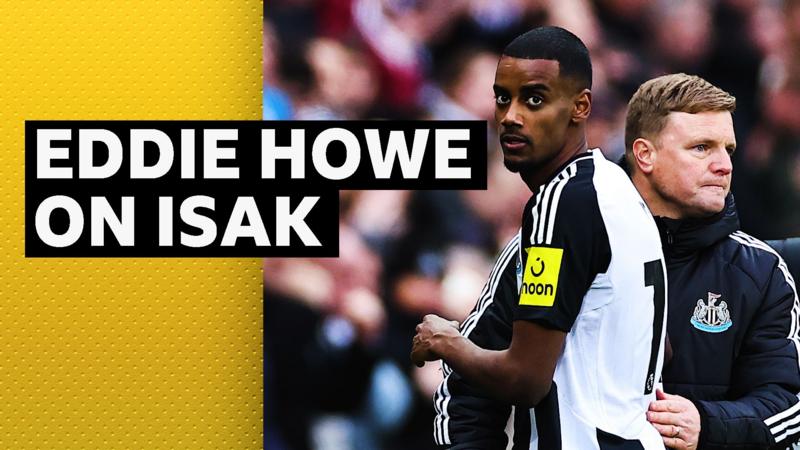Howe Unveils Transformation in Relationship with Newcastle Star Isak




Eddie Howe, the manager known for his calm demeanor and tactful approach to football management, has lately found himself in a rather challenging situation. The ripple effects of Alexander Isak's controversial move to Liverpool continue to be felt, both in the locker room and beyond. Isak, the young forward whose promising performances dazzled Newcastle fans, decided to take drastic action to secure his transfer, actions that, according to Howe, led to a significant shift in their relationship.
Isak’s "strike" to force a move is a stark narrative in today’s football culture, where player power seems to be at an all-time high. This phenomenon isn't new, but each instance throws up complex questions about loyalty, ambition, and the business of football. Isak, a Swedish international, who had been seen as a key piece of Newcastle's future, evidently felt that a move to a club like Liverpool, with its rich history and consistent European involvement, represented a personal and professional step up.
The relationship between a manager and a player is pivotal. It is built on trust and mutual respect. Howe, who has been at the helm of Newcastle since 2021, has often been praised for his player management skills. His ability to nurture talent and create a cohesive team has won him many admirers. However, the situation with Isak tested these skills profoundly. When a player goes on “strike,” it signifies a breakdown in communication and trust, elements that are crucial in any team sport.
In the wake of Isak’s departure, Howe was left to manage not just a missing spot in his squad but also the potential morale implications on the rest of the team. His handling of the situation speaks volumes about his management style. Rather than public outrage or bitter comments, Howe has chosen a more measured approach, arguably aimed at maintaining a balanced team environment and keeping focus on the club's aspirations and commitments without being overshadowed by controversy.
Eddie Howe’s experience at Newcastle, and previously at Bournemouth, shows that he values the collective strength of the team. This incident, however, posed a direct challenge to his managerial acumen. Balancing the immediate needs of the team while planning for future successes involves navigating such unexpected disruptions with as little disturbance as possible.
From Liverpool’s perspective, acquiring a player like Isak is a strategic move. The club has been in the market looking for fresh legs to inject energy and ingenuity upfront. Isak’s record before his move spoke volumes of his potential to fill this role. Nevertheless, Liverpool’s gain is Newcastle’s loss, and how this transfer affects the dynamics within both teams remains to be seen throughout the season.
As for Isak’s personal career trajectory, only time will tell if his decision to push for a move was prudent. The pressure to perform will be greater, and the scrutiny intense. At a club like Liverpool, expectations are perpetually high, and every move is magnified by fans and critics alike.
Incidents like this also spark broader discussions about the nature of contracts and commitments in professional sports. The balance between a club’s interests and a player’s career ambitions has always been delicate. With increasing media focus and the astronomical sums of money involved, each decision is dissected from every angle.
In conclusion, while Isak's move to Liverpool opens a new chapter for him personally, it leaves behind ripples that will affect many. For Eddie Howe, it's a test of resilience and adaptability. How he and Newcastle navigate this period will be closely watched, as it could very well set precedents for future dealings in football’s ever-evolving landscape.